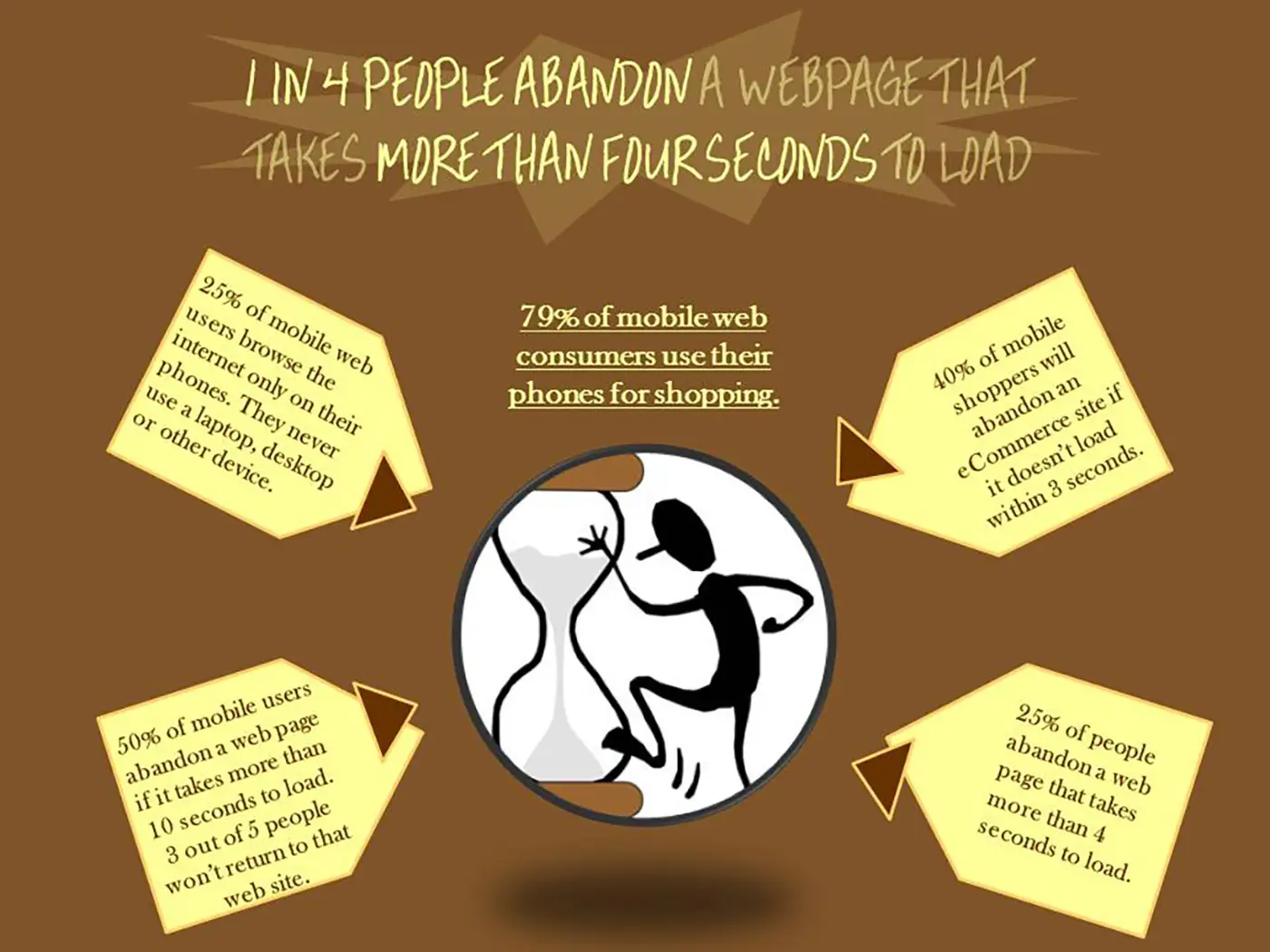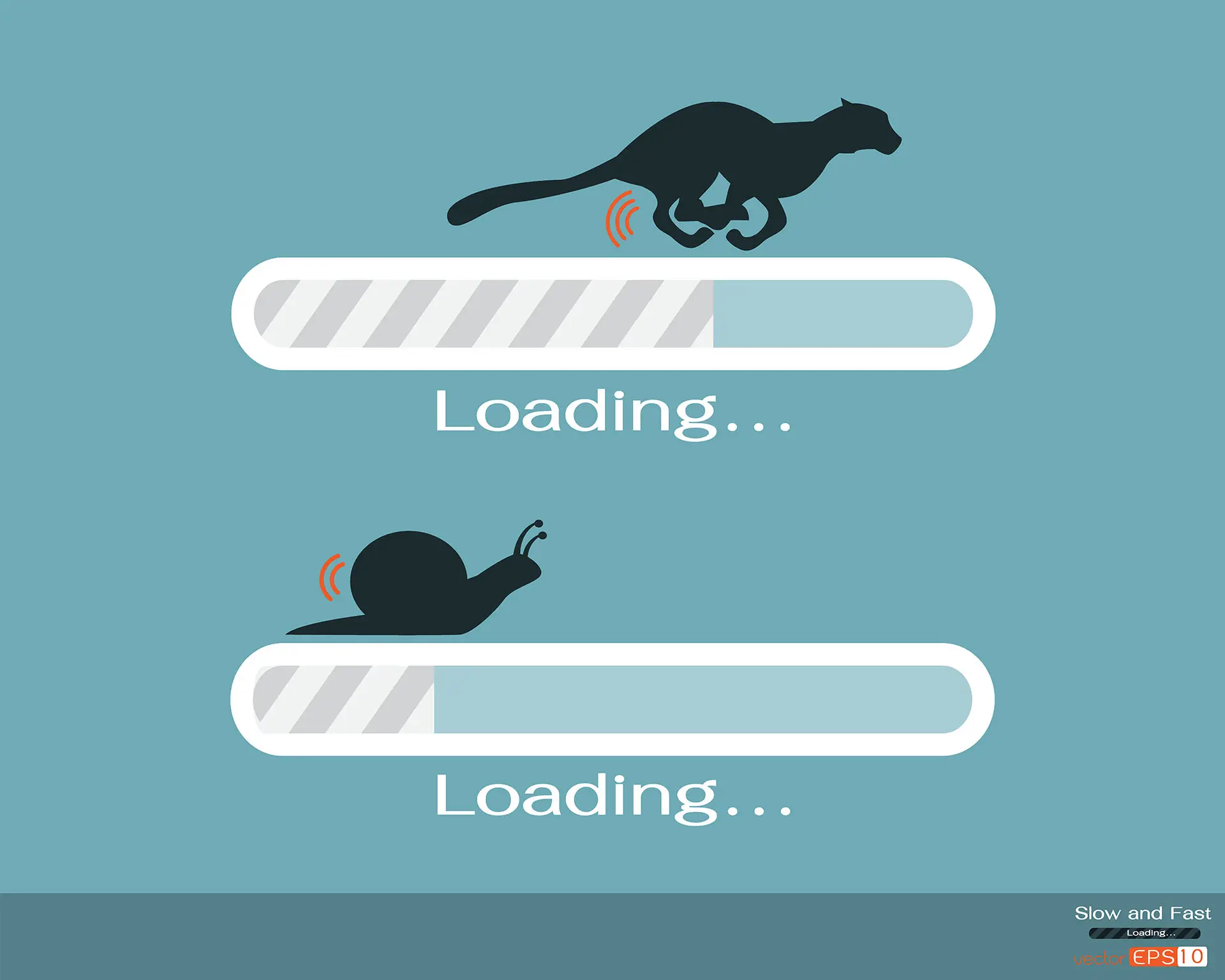Does Your Website Load Fast Enough?
We live in a fast-paced digital world and when it comes to browsing the internet, patience is in short supply. Recent statistics confirm just how impatient users can be when waiting for a website to load. If your website doesn’t load quickly enough, you risk losing valuable traffic and potential customers before they’ve even had a chance to explore your site.
In this blog, we’ll explore the importance of website speed, and why ensuring your site loads quickly is a crucial part of any successful online marketing strategy.
The Impact of Website Speed
We often focus on driving traffic to our websites through social media, blogs and external links, but what happens when visitors click on your link only to be met with a slow-loading site? Most users won’t stick around. This is known as a “bounce”, where visitors leave your site almost immediately without interacting with it.
Bouncing can negatively impact your organic search rankings, as search engines like Google track user engagement. A high bounce rate sends a signal to search engines that your site isn’t delivering the best user experience, which can harm your rankings.
As the infographic below shows, you only have a handful of seconds to capture your audience’s attention. If your site doesn’t load quickly enough, they’re likely to leave and may never return. Given the effort and time invested in generating traffic to your site, ensuring it loads fast enough to retain these visitors is essential.

Why Website Speed Matters
Here’s why having a fast-loading website is crucial for your business:
- First Impressions Count
Your website is often the first interaction a potential customer will have with your business. A slow-loading site can leave a poor first impression, leading visitors to associate your brand with inefficiency. On the other hand, a quick and responsive website gives the impression of professionalism and reliability. - Improved User Experience
A fast-loading website contributes to a positive user experience. Visitors are more likely to stay on your site, browse your content and potentially convert into customers if their experience is seamless. Frustration with slow page loads can result in visitors leaving your site and seeking out a competitor. - Higher Search Engine Rankings
Search engines like Google take website speed into account when ranking sites. A slow website can hurt your SEO efforts, even if your content is excellent. To stay competitive in search engine results, your website needs to load quickly and provide a smooth user experience. - Increased Conversions
The faster your website loads, the more likely visitors are to complete actions, whether that’s making a purchase, filling out a form or engaging with your content. Slow page load times can cause potential customers to abandon their visit before they even begin to engage with your offering.
How to Improve Website Speed
If your website is loading slowly, it’s time to take action. There are several reasons why this could be happening, but the good news is that most of them are relatively easy to fix. Here are some common causes of slow-loading websites and how to address them:
- Large Image Files:
High-resolution images are often the culprit when it comes to slow-loading websites. Compressing your images to reduce file size can significantly speed up load times without sacrificing quality. - Hosting Issues:
If your hosting plan doesn’t offer enough resources, your website’s performance could suffer. Speak with your web developer or hosting provider to ensure that your hosting package is suitable for your website’s size and traffic demands. - Too Many Plugins:
For WordPress sites and other CMS-based websites, having too many plugins can slow things down. Review your installed plugins and remove any that aren’t essential to your site’s functionality. - Outdated Code:
Websites need regular updates, and outdated code or themes can lead to slow performance. Ensure your website is updated regularly to avoid potential speed issues. - Caching:
Implementing caching solutions can help reduce load times by storing a version of your website that loads more quickly for repeat visitors.
How to Check Your Website Speed
Not sure if your website is loading fast enough? You can use free online tools such as Google PageSpeed Insights or GTmetrix to check your website’s loading time. These tools provide insights into what might be slowing down your site and offer suggestions for improvement.
Don’t Let a Slow Website Hold You Back
You’ve invested time and effort into building your website, crafting valuable content, and driving traffic through online marketing strategies such as SEO, social media and blogging. Don’t let slow load times undo all your hard work. A fast website keeps visitors engaged, boosts your search engine rankings, and improves your chances of converting traffic into leads or sales.
If you suspect your website isn’t performing at its best, contact your web developer to investigate the issue. Whether it’s large image files, hosting issues or other technical factors, there are several ways to optimise your site’s speed and ensure a smooth user experience.
At The Last Hurdle™, we’re here to help with all aspects of your online marketing. We offer website reviews, SEO consultations and digital marketing strategies to ensure your website not only loads quickly but also delivers the best possible experience for your visitors.
If you’re concerned that your website might be underperforming, get in touch with us today. We can help identify any issues and offer solutions to get your site running smoothly.
Infographic by Jade Thomas, Copyright The Last Hurdle™, 2013.





